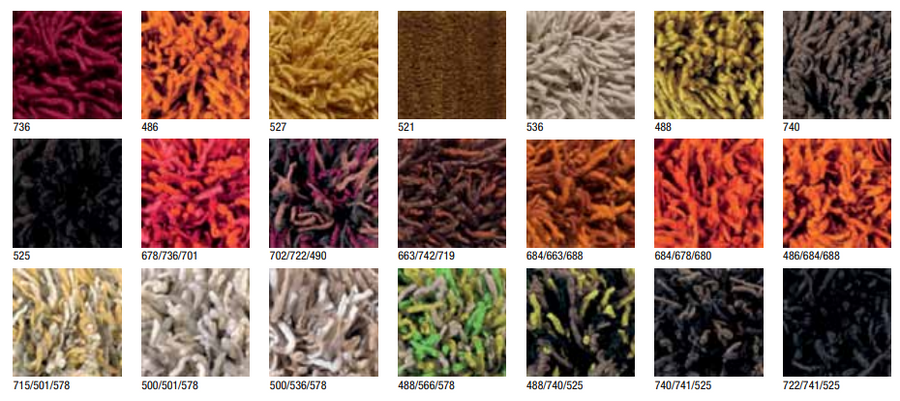
Casalis Buffo Carpet
BUFFO CARPET
With their wealth of high-quality materials and their frivolous character, these handmade rugs give a new dimension to the word ‘cozy’.
Their deep pile is made even deeper through the use of thick and thin yarns, while the sparkling colours and striking volume evoke sweet memories of the seventies. A caress for the eye, in both single-colour and tricolour variants.
INFORMATION
TOTAL THICKNESS
50 mm
PILE STRUCTURE
Cut pile
CHILD LABOUR
The production of Casalis-carpets is carried out without the use of child labour.
FINISH BORDERS
Longer sides edged with wool. On the short sides a folded Kelim border edged with wool.
POSSIBLE SHAPES
Round, oval, polygonal etc. Sometimes the back is covered with a layer of latex in order to improve the stability of the carpet.
MATERIAL BACK
Wool and jute
COLLECTION
Buffo
PRODUCTION METHOD
Hand-knotted
USE
Indoor
SPECIFIC MAINTENANCE INSTRUCTIONS
Removing of stains: Limit the use of moisture to an absolute minimum. If moisture is used, dry the carpet with a hair drier (at a safe distance) as soon as possible, or by dabbing (not wiping) it with a dry cloth. The back consists mainly of jute which could rot if left wet for too long. Please note: wiping instead of dabbing may damage the structure of the wool.
NON STANDARD COLOURS
-Based on our colour reference boxes. -Based on a reference sample (e.g. piece of fabric). -Size of the samples available: 18 x 38 cm. colour sample.
DETAIL
Slight colour differences between yarn batches are characteristic of dying natural materials and consequently cannot be valid grounds for complaints.
DESIGNS
The Buffo-collection does not contain standard designs, but designs are possible using different colour areas.
DEVIATIONS TO SIZE AND SHAPE
Because Casalis carpets are made by hand, slight deviations in shape and size can occur. These imperfections are part and parcel of a carpet made by hand and consequently cannot be valid grounds for complaints.
USE AS WALL-TO-WALL CARPET
-The Buffo-quality can also be used as a wall-to-wall carpet. In that case, the carpet will be made in the shape of the surface of the floor with a little extra on the sides allowing it to be cut to size once in situ. To avoid fraying, the cut edges need to be glued down. A simple solution is to latex the entire carpet. -Next, the carpet is glued to the floor or stretched between the walls. Stretching has the advantage that the carpet can be taken out again in a simple way. Ask a professional interior decorator which method is best suited to the room in question.
DESIGNER - LISET VAN DER SCHEER
After graduating from the Design Academy in Eindhoven she has been working as an independent industrial textile designer and colour expert. 'The importance of designing to me lies in marketing a product that adds to the identity that the consumer wishes to convey at a particular moment in time. In my designs, the challenge lies in applying traditional materials in an innovative way, or in applying new materials to an existing production process. I always try to stretch the bounds of possibility. Looking at colour has become my second nature, and in building designs, be it textiles or carpets, the starting point is always the expression of the yarn'.
CRAFT & MATERIALS
NEW ZEALAND WOOL
Out of all the different wools, New Zealand wool is praised to be the whitest, allowing for a broader range of colour after dyeing. It is a blend of Merino and Down breeds who are specially selected for their comfort, strength, and performance. The wool is grown and processed in both New Zealand and Australia.














